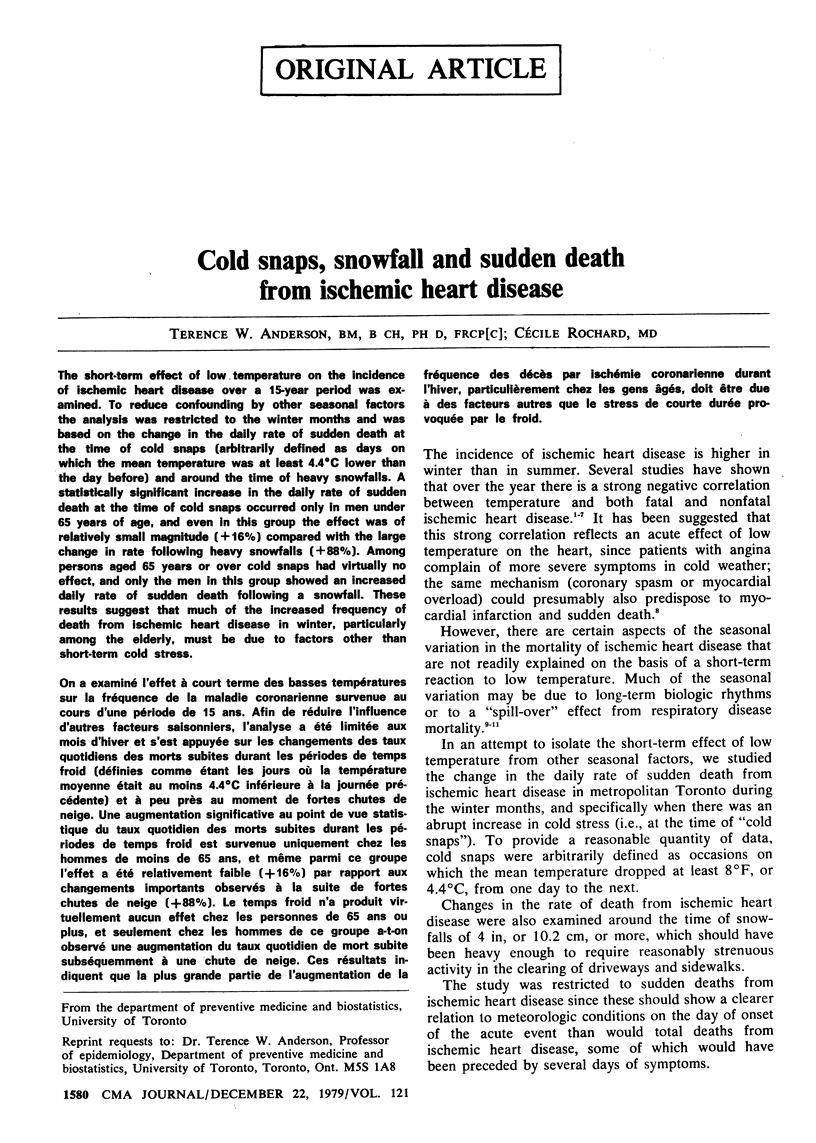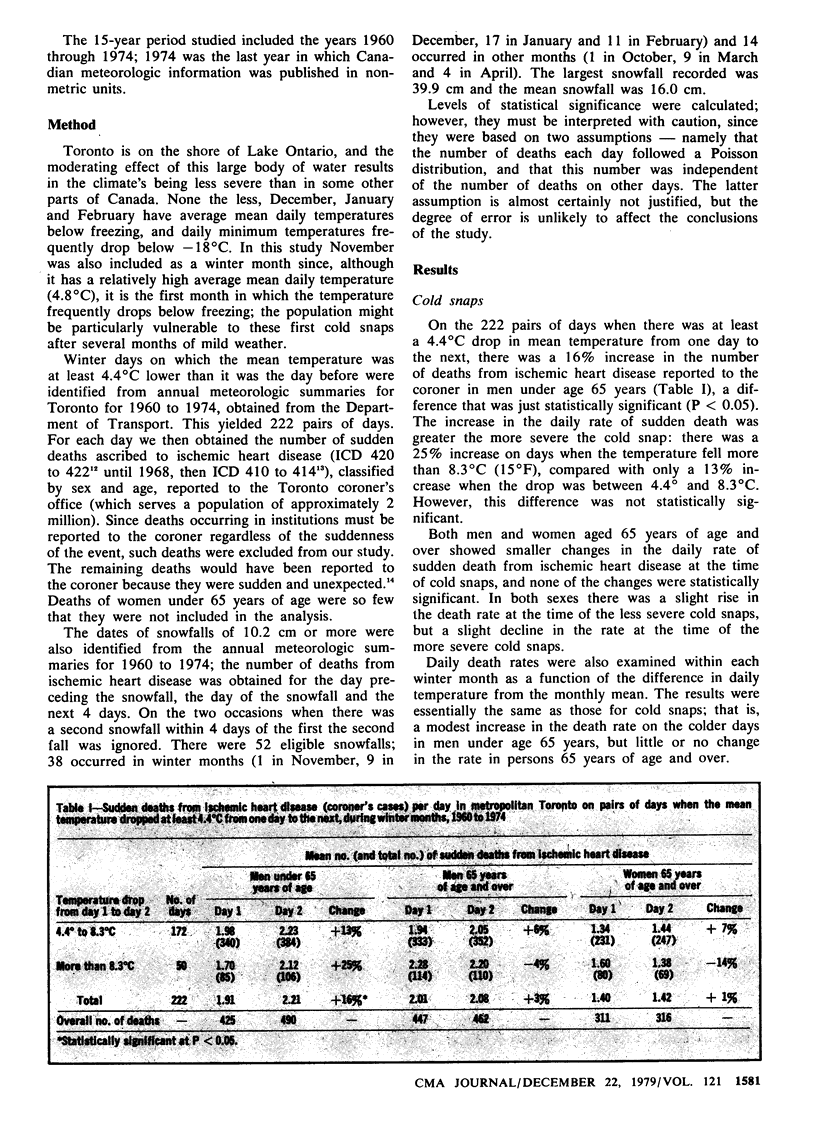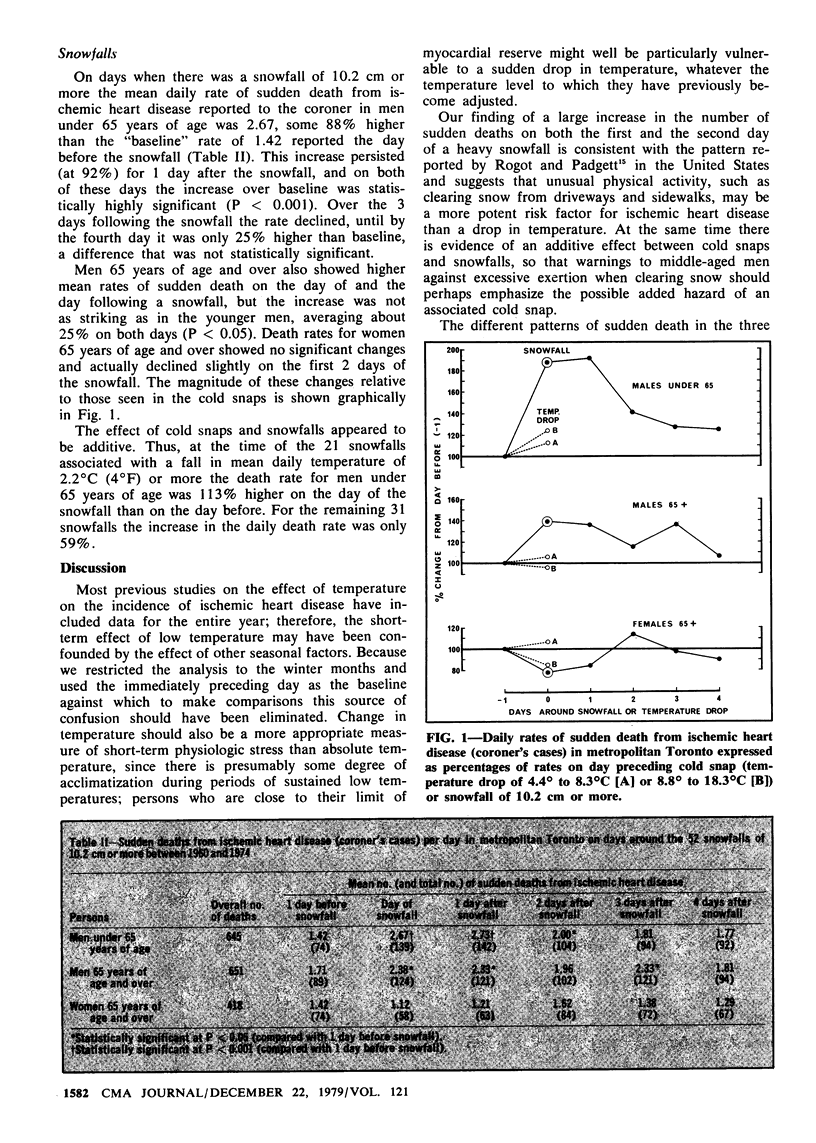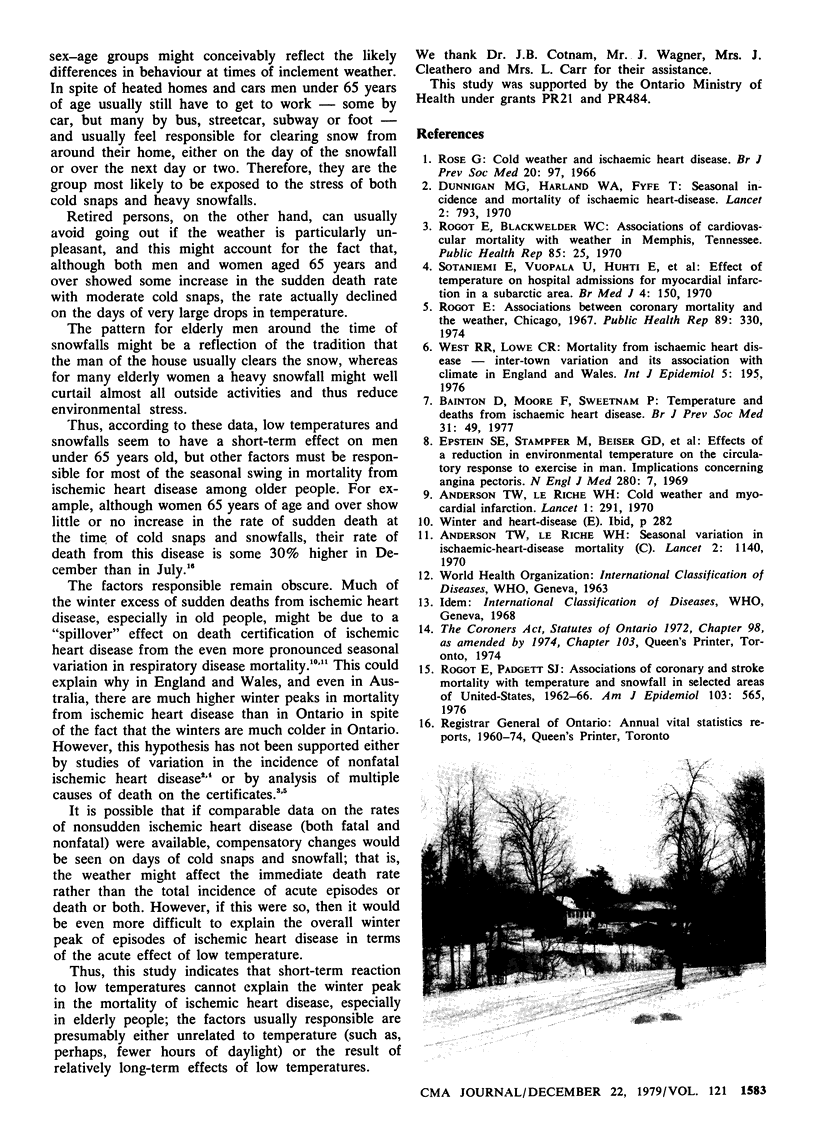Abstract
The short-term effect of low temperature on the incidence of ischemic heart disease over a 15-year period was examined. To reduce confounding by other seasonal factors the analysis was restricted to the winter months and was based on the change in the daily rate of sudden death at the time of cold snaps (arbitrarily defined as days on which the mean temperature was at least 4.4 degrees C lower than the day before) and around the time of heavy snowfalls. A statistically significant increase in the daily rate of sudden death at the time of cold snaps occurred only in men under 65 years of age, and even in this group the effect was of relatively small magnitude (+16%) compared with the large change in rate following heavy snowfalls (+88%). Among persons aged 65 years or over cold snaps had virtually no effect, and only the men in this group showed an increased daily rate of sudden death following a snowfall. These results suggest that much of the increased frequency of death from ischemic heart disease in winter, particularly among the elderly, must be due to factors other than short-term cold stress.
Full text
PDF



Images in this article
Selected References
These references are in PubMed. This may not be the complete list of references from this article.
- Anderson T. W., Le Riche W. H. Cold weather and myocardial infarction. Lancet. 1970 Feb 7;1(7641):291–296. doi: 10.1016/s0140-6736(70)90651-3. [DOI] [PubMed] [Google Scholar]
- Anderson T. W., Le Riche W. H. Seasonal variation in ischaemic-heart-disease mortality. Lancet. 1970 Nov 28;2(7683):1140–1140. doi: 10.1016/s0140-6736(70)92343-3. [DOI] [PubMed] [Google Scholar]
- Bainton D., Moore F., Sweetnam P. Temperature and deaths from ischaemic heart disease. Br J Prev Soc Med. 1977 Mar;31(1):49–53. doi: 10.1136/jech.31.1.49. [DOI] [PMC free article] [PubMed] [Google Scholar]
- Dunnigan M. G., Harland W. A., Fyfe T. Seasonal incidence and mortality of ischaemic heart-disease. Lancet. 1970 Oct 17;2(7677):793–797. doi: 10.1016/s0140-6736(70)91460-1. [DOI] [PubMed] [Google Scholar]
- Epstein S. E., Stampfer M., Beiser G. D., Goldstein R. E., Braunwald E. Effects of a reduction in environmental temperature on the circulatory response to exercise in man. Implications concerning angina pectoris. N Engl J Med. 1969 Jan 2;280(1):7–11. doi: 10.1056/NEJM196901022800102. [DOI] [PubMed] [Google Scholar]
- Rogot E. Associations between coronary mortality and the weather, Chicago, 1967. Public Health Rep. 1974 Jul-Aug;89(4):330–338. [PMC free article] [PubMed] [Google Scholar]
- Rogot E., Blackwelder W. C. Associations of cardiovascular mortality with weather in Memphis, Tennessee. Public Health Rep. 1970 Jan;85(1):25–39. [PMC free article] [PubMed] [Google Scholar]
- Rogot E., Padgett S. J. Associations of coronary and stroke mortality with temperature and snowfall in selected areas of the United States, 1962-1966. Am J Epidemiol. 1976 Jun;103(6):565–575. doi: 10.1093/oxfordjournals.aje.a112261. [DOI] [PubMed] [Google Scholar]
- Sotaniemi E., Vuopala U., Huhti E., Takkunen J. Efeect of temperature on hospital admissions for myocardial infarction in a subarctic area. Br Med J. 1970 Oct 17;4(5728):150–151. doi: 10.1136/bmj.4.5728.150. [DOI] [PMC free article] [PubMed] [Google Scholar]
- West R. R., Lowe C. R. Mortality from ischaemic heart disease--inter-town variation and its association with climate in England and Wales. Int J Epidemiol. 1976 Jun;5(2):195–201. doi: 10.1093/ije/5.2.195. [DOI] [PubMed] [Google Scholar]



